Blockbuster Trades in Baseball
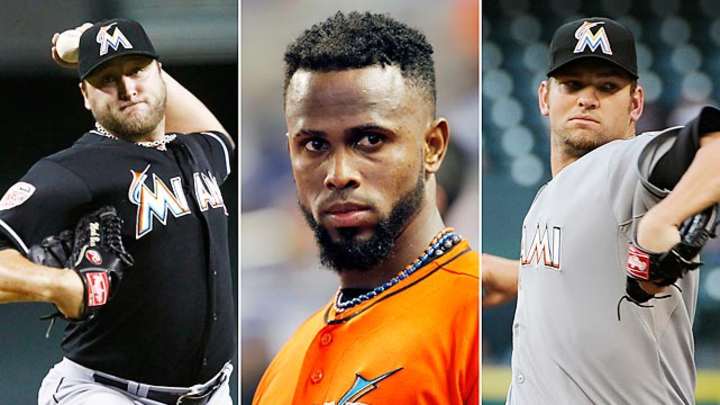
Blockbuster Trades in Baseball
Marlins-Blue Jays, November 2012

Just one year after opening a brand new stadium and spending over $150 million in the offseason, the Miami Marlins commenced yet another fire sale, unloading star shortstop Jose Reyes and pitchers Josh Johnson and Mark Buehrle in return for shortstops Yunel Escobar and Adieny Hechavarria along with right hander Henderson Alvarez and several other prospects. Reyes and Buehrle played only one year for the Marlins despite signing expensive multiyear deals, and local fans were outraged because the $2.4 billion stadium project was publicly funded. The Marlins have just two players from the 2012 Opening Day lineup remaining -- Giancarlo Stanton and Logan Morrison.
Dodgers-Red Sox, August 2012
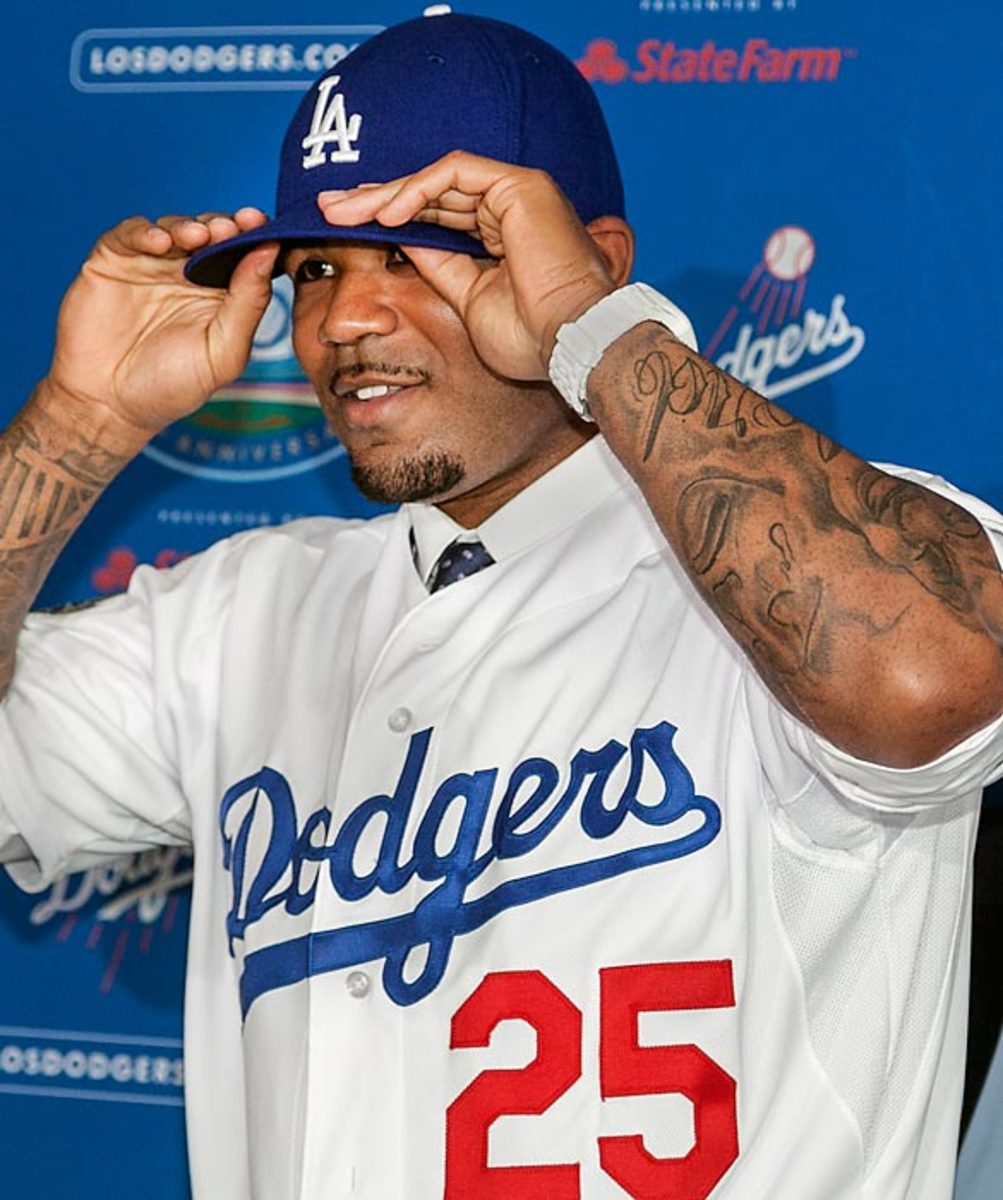
<italics>Details: The Red Sox traded Adrian Gonzalez, Josh Beckett, Carl Crawford (pictured), Nick Punto and cash to the Dodgers for James Loney, Allen Webster, Rubby De La Rosa, Ivan De Jesus and Jerry Sands.</italics> Flush with cash from their new ownership, the Dodgers completed one of the most mind-bogglingly expensive deals in recent memory, assuming more than $275 million in payroll from the Red Sox in exchange for some of their top prospects.
Phillies-Mariners-Blue Jays-A's, December 2009
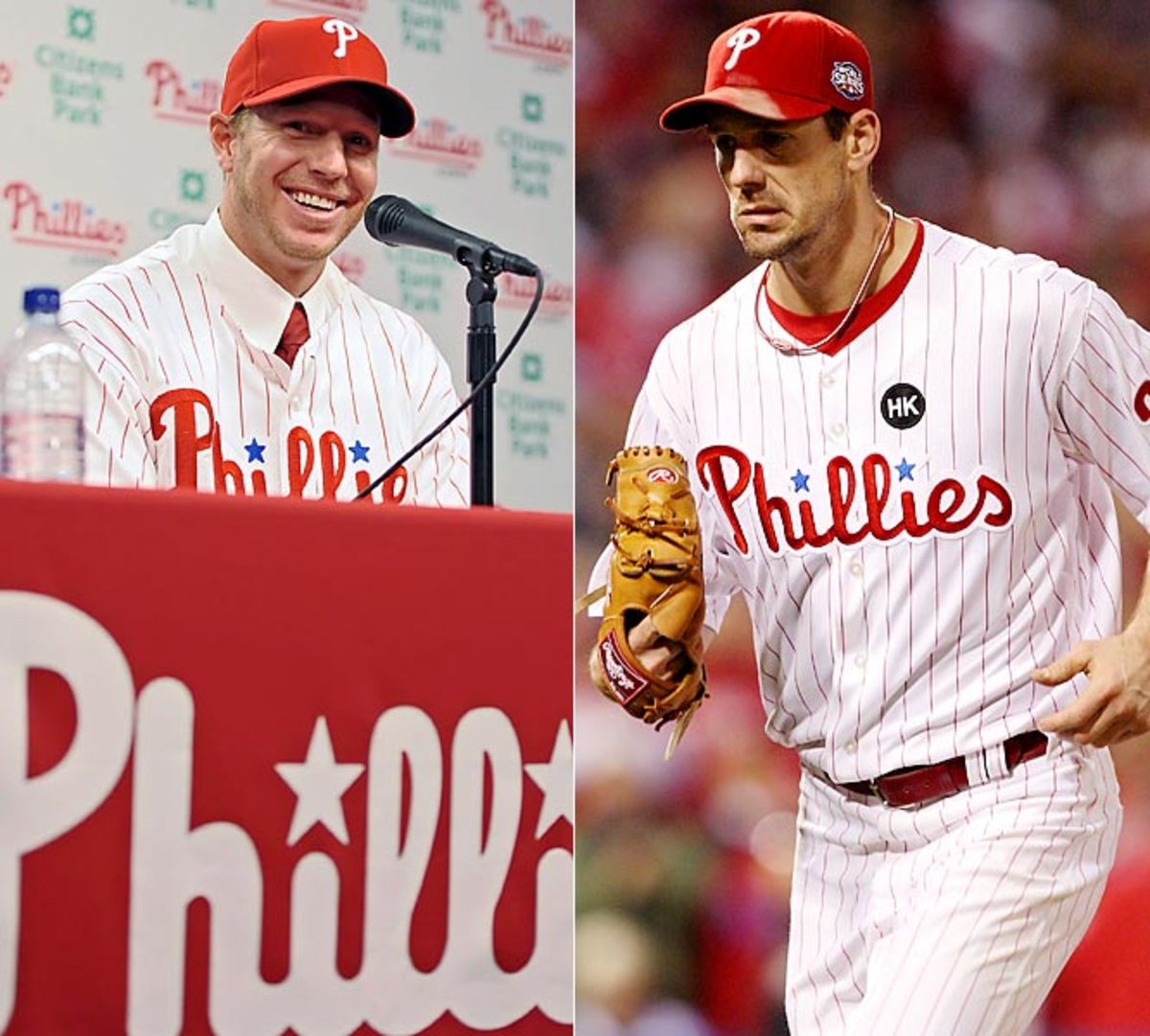
<italics>Details: Roy Halladay, Phillippe Aumont, Tyson Gillies, J.C. Ramirez and cash to the Phillies; Cliff Lee to the Mariners; Travis d'Arnaud, Kyle Drabek and Brett Wallace to the Blue Jays; Michael Taylor to the A's.</italics> Two Cy Young winners were traded on the same day for the first time ever when the Phillies acquired Halladay (2003 AL) from the Blue Jays and the Mariners obtained postseason hero Lee (2008 AL) from Philadelphia. Halladay immediately agreed to a three-year, $60 million extension through 2013 then went out and won the Cy Young in 2010, pitching a perfect game against the Marlins and no-hit the Reds in the second ever playoff no-hitter.
Dodgers-Red Sox-Pirates, July 2008
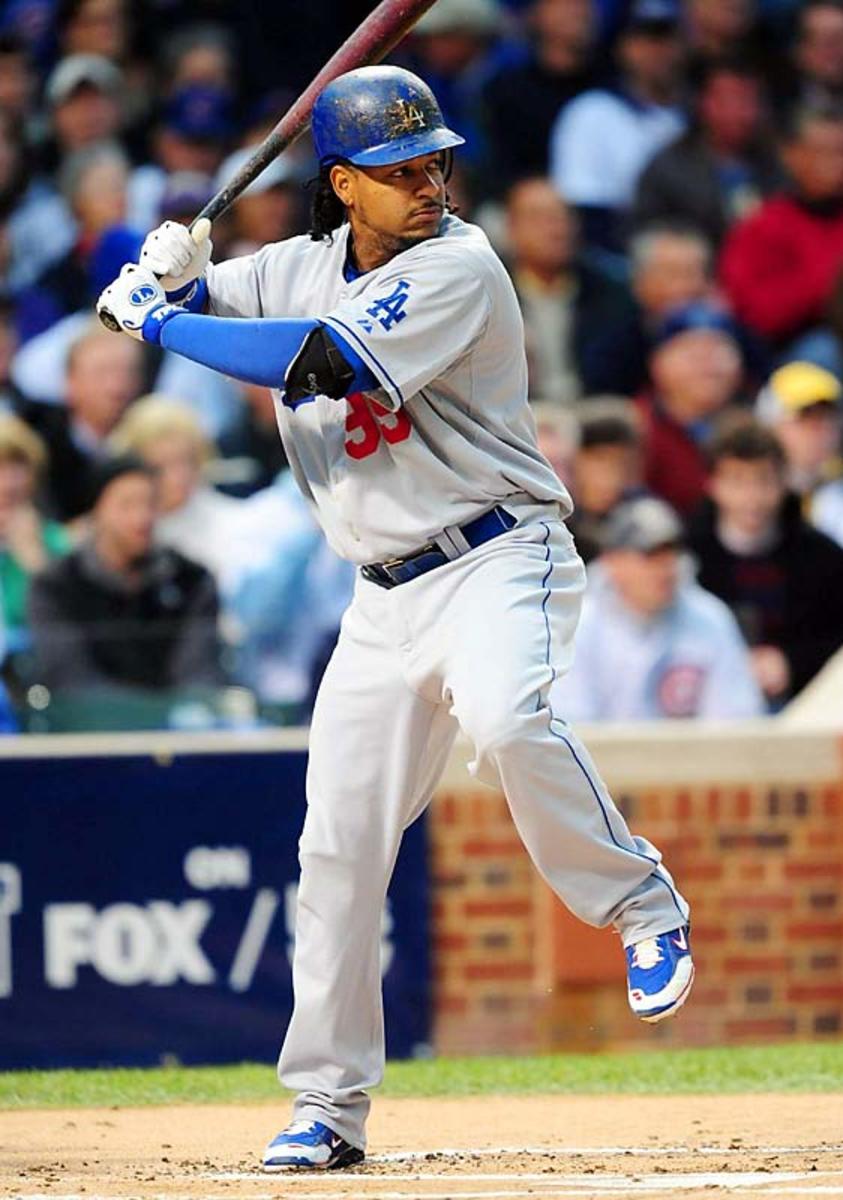
<italics>Details: Manny Ramirez to the Dodgers; Jason Bay to the Red Sox; Andy LaRoche, Bryan Morris, Brandon Moss and Craig Hansen to the Pirates.</italics> Ramirez earned his way out of Boston by misbehaving in his final season, when the Red Sox became desperate to unload the hitting star. He became an immediate sensation in L.A., where it was practically love at first sight for inhabitants of Mannywood. Ramirez helped lead the Dodgers to the NLCS, fitting into that scene much better before being caught in a drug suspension early in 2009. Bay put up nice numbers in Boston before becoming a free agent in 2009. None of the players the Pirates acquired made a notable impact in Pittsburgh.
Rangers-Braves, 2007
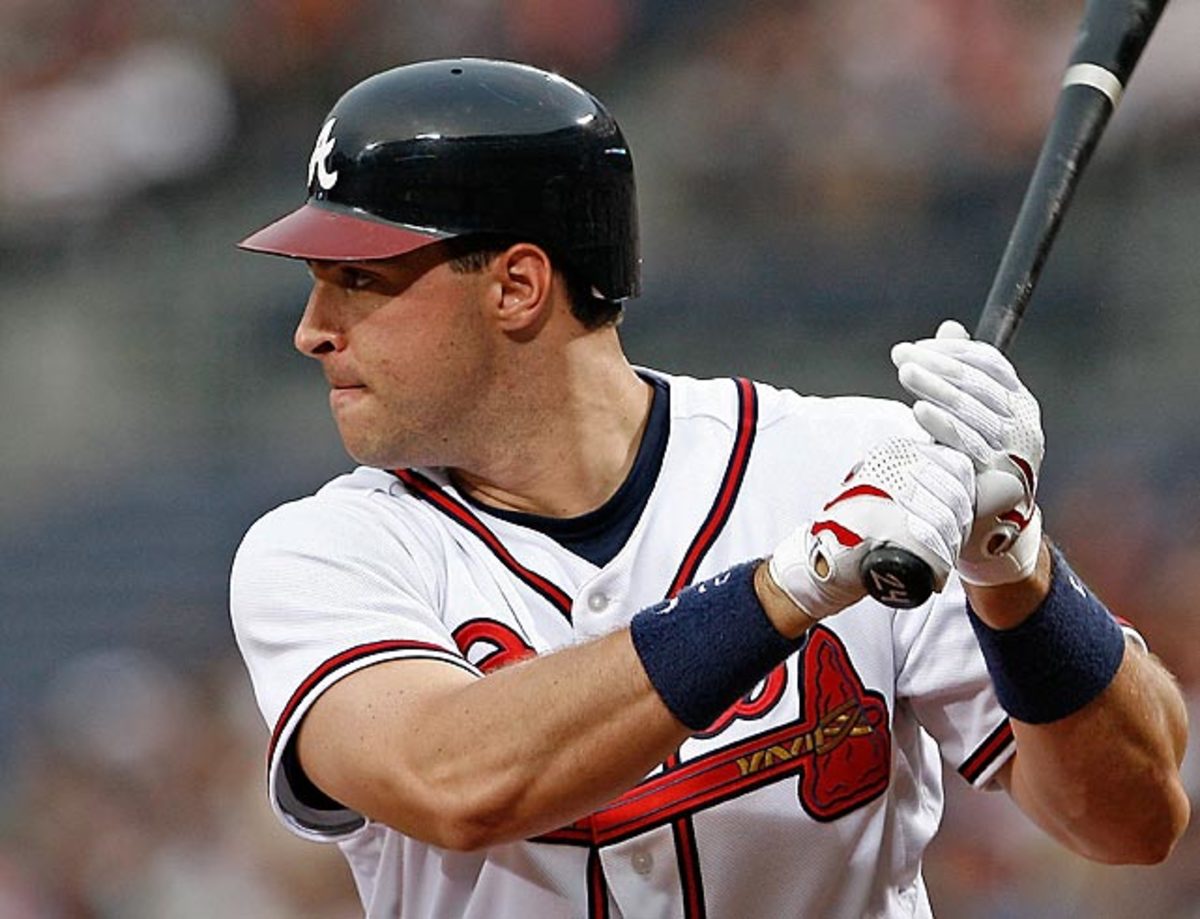
<italics>Details: The Rangers traded Mark Teixeira and Ron Mahay to the Braves for Jarrod Saltalamacchia, Elvis Andrus, Neftali Feliz, Matt Harrison and Beau Jones.</italics> It was the trade that helped build the modern Rangers, and one the Braves certainly wish they could have back. Atlanta sacrificed top prospects including Andrus, Feliz and Harrison, all of whom have become valuable pieces for Texas. In July 2008, the Braves traded Teixeira to the Angels, where he spent the rest of that season before signing as a free agent with the Yankees in the offseason.
Marlins-Red Sox, November 2005
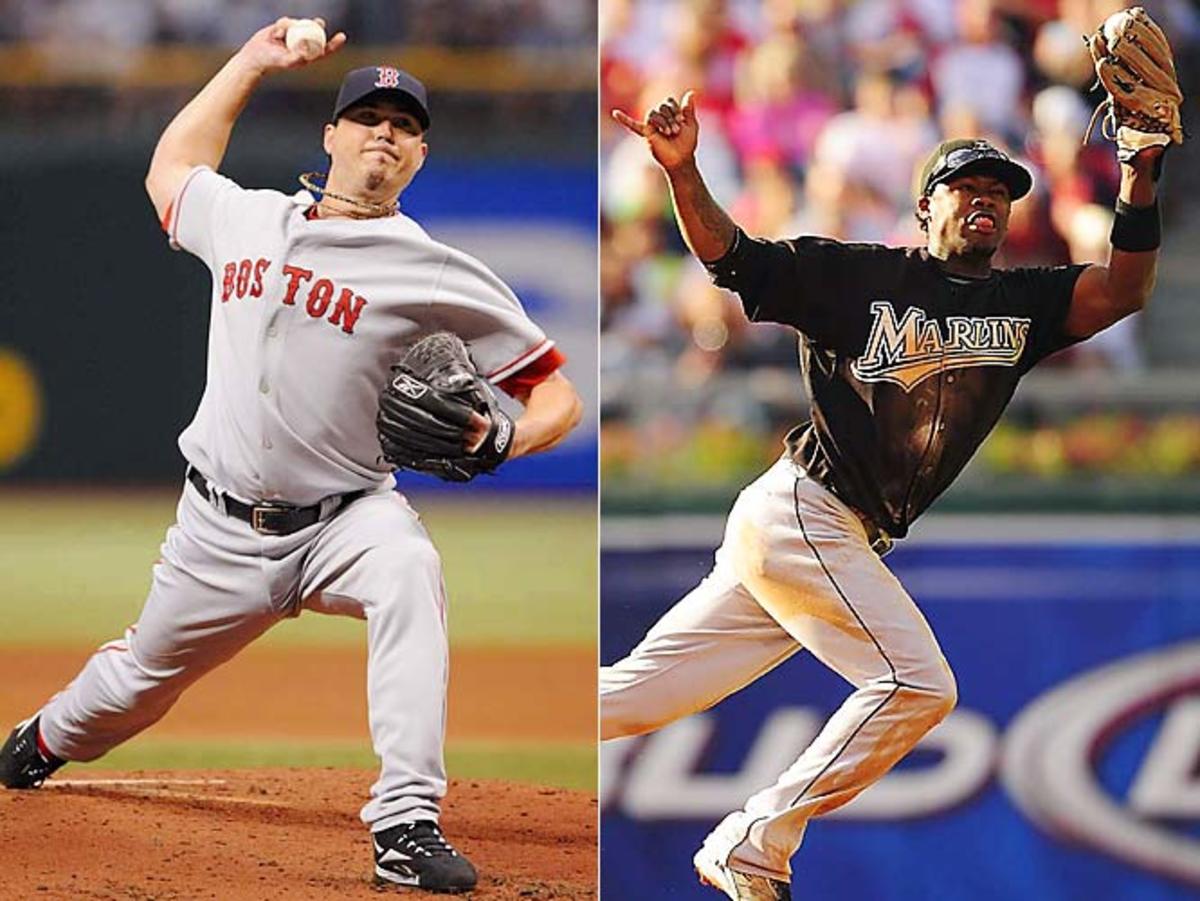
<italics>Details: </italics><italics>Josh Beckett, Mike Lowell and Guillermo Mota to the Red Sox from the Marlins for Hanley Ramirez, Anibal Sanchez, Jesus Delgado and Harvey Garcia.</italics> The Red Sox took advantage of one of the Marlins' many salary sell-offs by acquiring Beckett, the MVP of the 2003 World Series. Beckett went 89-58 in Boston and was the MVP of the 2007 ALCS. The World Series MVP that year was Lowell. Florida's haul included Ramirez, who won the 2009 batting title and was one of the game's best players for a few years, and Sanchez, who threw a no-hitter as a Marlin in '06, when he went 10-3.
Red Sox-Cubs-Twins-Expos, July 2004
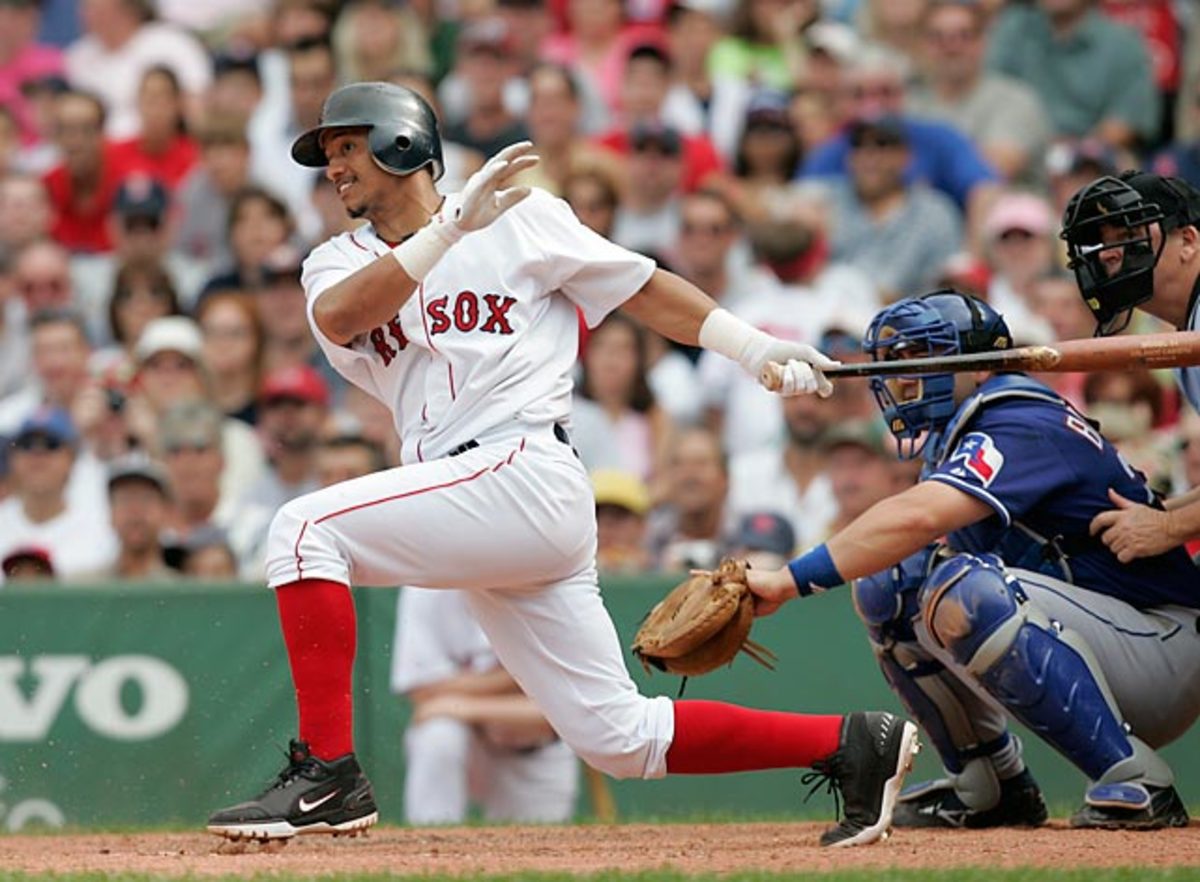
<italics>Details: The Red Sox traded Nomar Garciaparra and Matt Murton to the Cubs, the Expos traded Orlando Cabrera (pictured) to the Red Sox, the Twins traded Doug Mientkiewicz to the Red Sox, the Cubs traded Francis Beltran, Alex Gonzalez and Brendan Harris to the Expos, the Cubs traded Justin Jones to the Twins.</italics> It was the shocking end to the Nomar Garciaparra era in Boston, but the trade netted the Red Sox Orlando Cabrera and Doug Mientkiewicz, who were instrumental in the Boston's curse-breaking World Series victory later that season.
Yankees-Rangers, February 2004
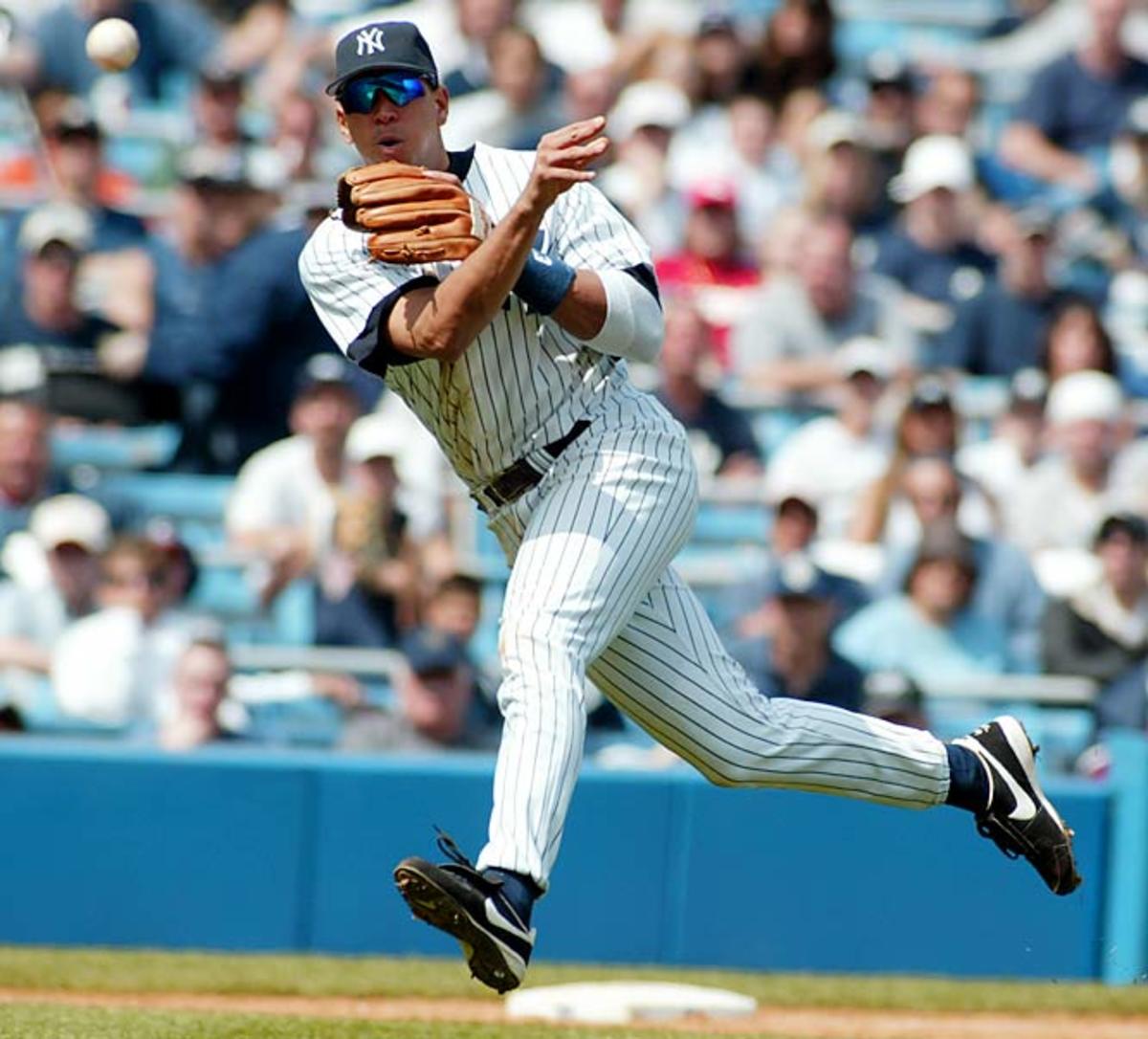
<italics>Details: The Rangers traded Alex Rodriguez to the Yankees for Alfonso Soriano and a Player to Be Named Later.</italics> The Red Sox were initially linked to Rodriguez, but the big winner turned out to be the Yankees, who assumed Rodriguez's massive contract that he signed in 2001 with the hapless Rangers. Rodriguez became a polarizing and controversial figure in New York, but he did win two MVPs and anchor the Yankees in their 2009 World Series title run.
Twins-Giants, November 2003
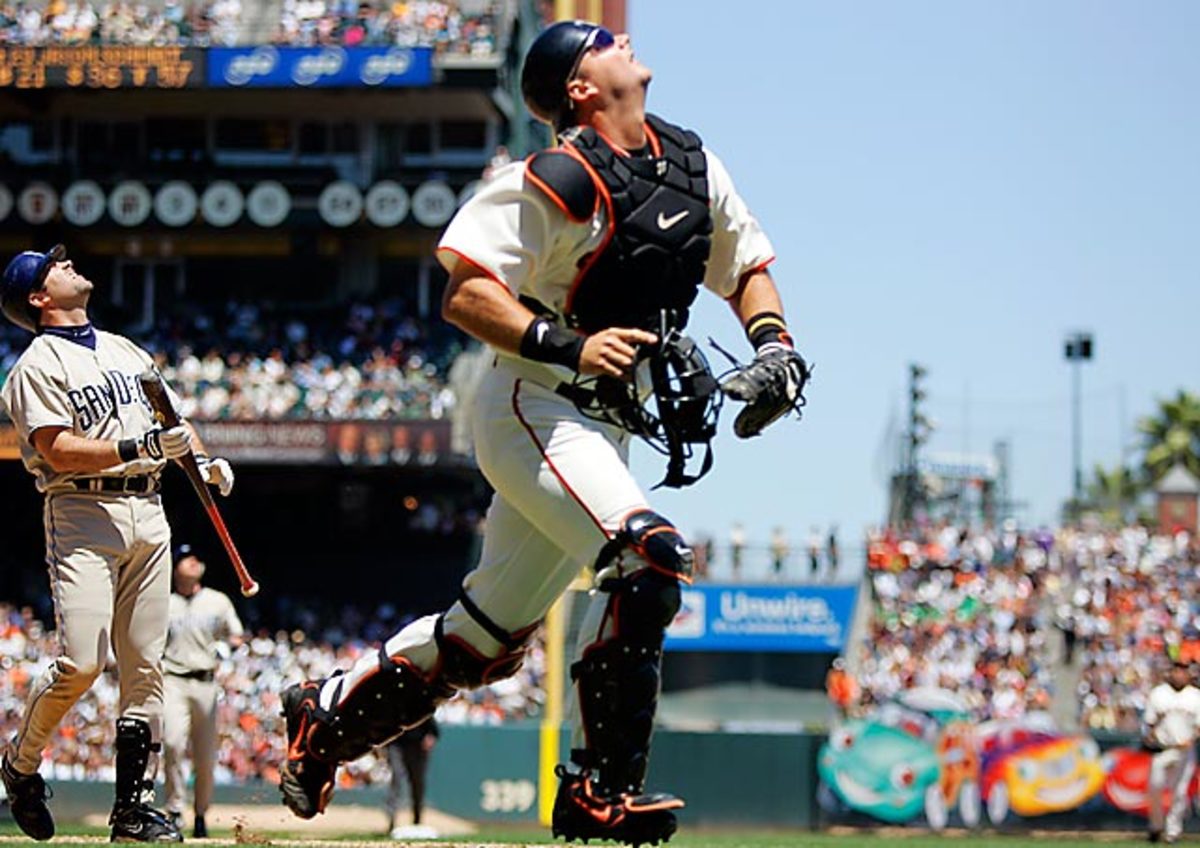
<italics>Details: The Giants traded Joe Nathan, Francisco Liriano and Boof Bonser to the Twins for A.J. Pierzynski.</italics> The Giants needed a catcher at the time, but they traded for a player that would be instantly reviled and to get him, they dealt away a budding star at closer, a wondrous young talent and a serviceable starter. Pierzynski (picured) almost immediately wore out his welcome in San Francisco. A pitcher (rumored to be Brett Tomko) labeled the controversial catcher a clubhouse "cancer," while Nathan saved 44 games in his first season with the Twins, made the All-Star team and finished fourth in Cy Young voting. Nathan would save 260 games for the Twins over seven seasons while Liriano was absolutely sensational before being derailed by injuries.
Indians-Expos, June 2002
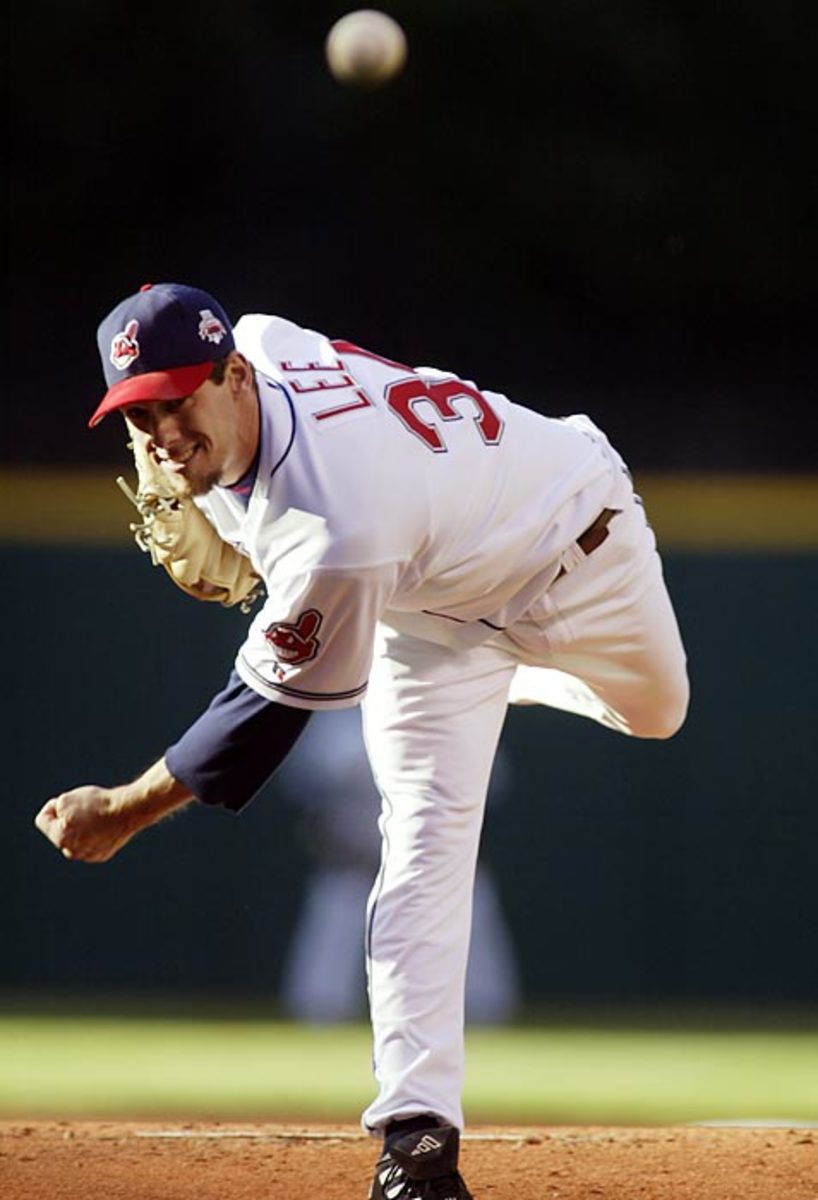
<italics>Details: The Indians traded Bartolo Colon and Tim Drew to the Expos for Cliff Lee, Brandon Phillips, Grady Sizemore and Lee Stevens.</italics> Colon was a dominant starter for the Indians until he was suddenly traded midseason to the surging Expos. It may not have looked like much at the time, but the Expos shipped 10 combined All-Star appearances, five combined Gold Gloves and one Cy Young Award in the process. The Indians didn't quite utilize all of the talent -- Phillips was traded to the Reds for a Player To Be Named Later (it would eventually be Jeff Stevens), and would break out in Cincinnati. Lee and Sizemore emerged as stars for the Indians, though Sizemore's promising career has been mostly wrecked by injuries.
Reds-Mariners, February 2000
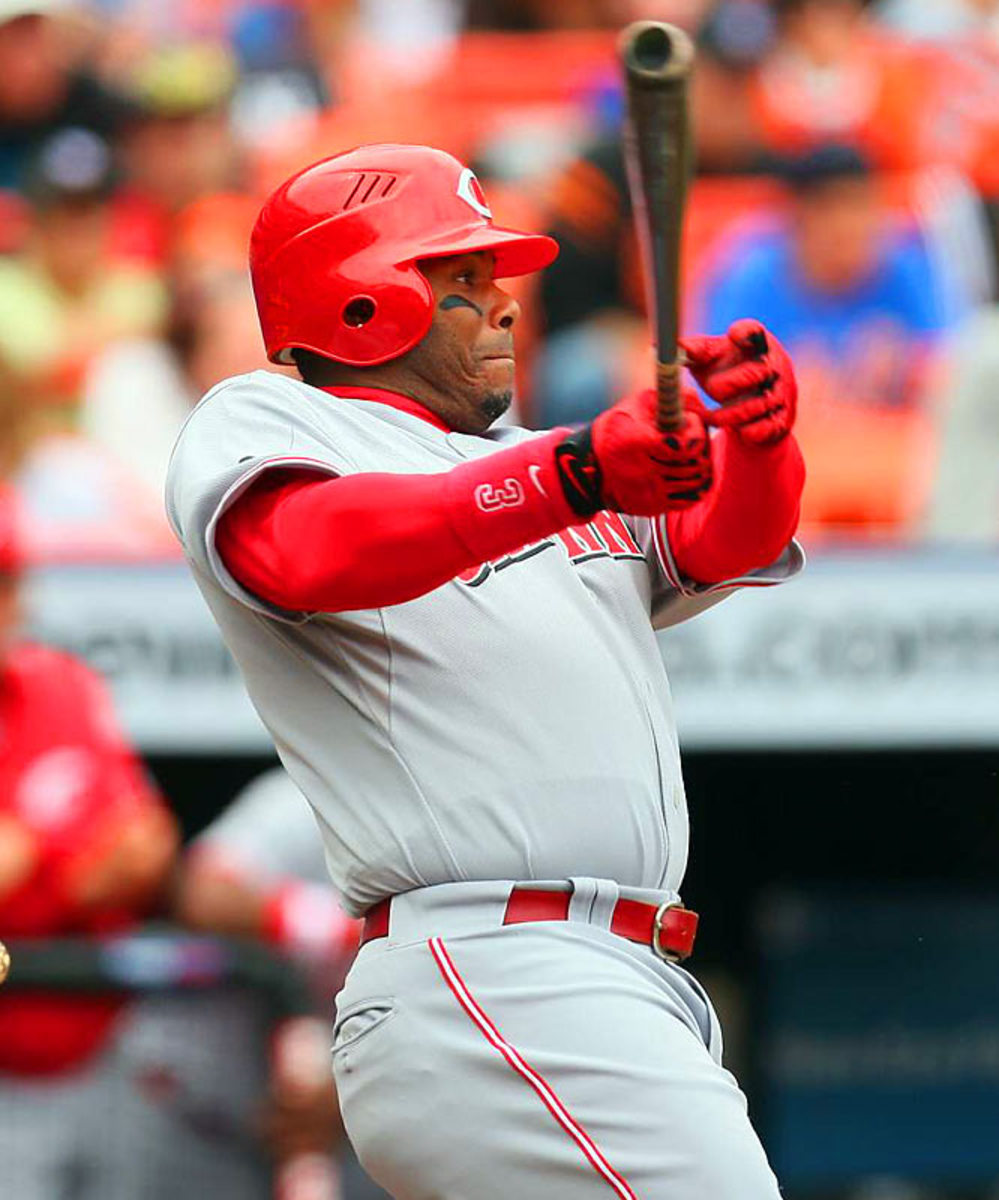
<italics>Details: Ken Griffey Jr. to the Reds from the Mariners for Jake Meyer, Mike Cameron, Antonio Perez and Brett Tomko.</italics> Arguably the best player in the game (or at least the American League), Griffey went to his hometown of Cincinnati in what appeared to be a grand renaissance for the Reds. But Griffey's time back in Ohio was constantly marred by injuries and losing. Cameron, Griffey's replacement in Seattle, became an All-Star and helped the Mariners win the AL West in both 2000 and 2001. He also won two Gold Gloves and notched a four-home run game during his time with Seattle.
Astros-Mariners, July 1998
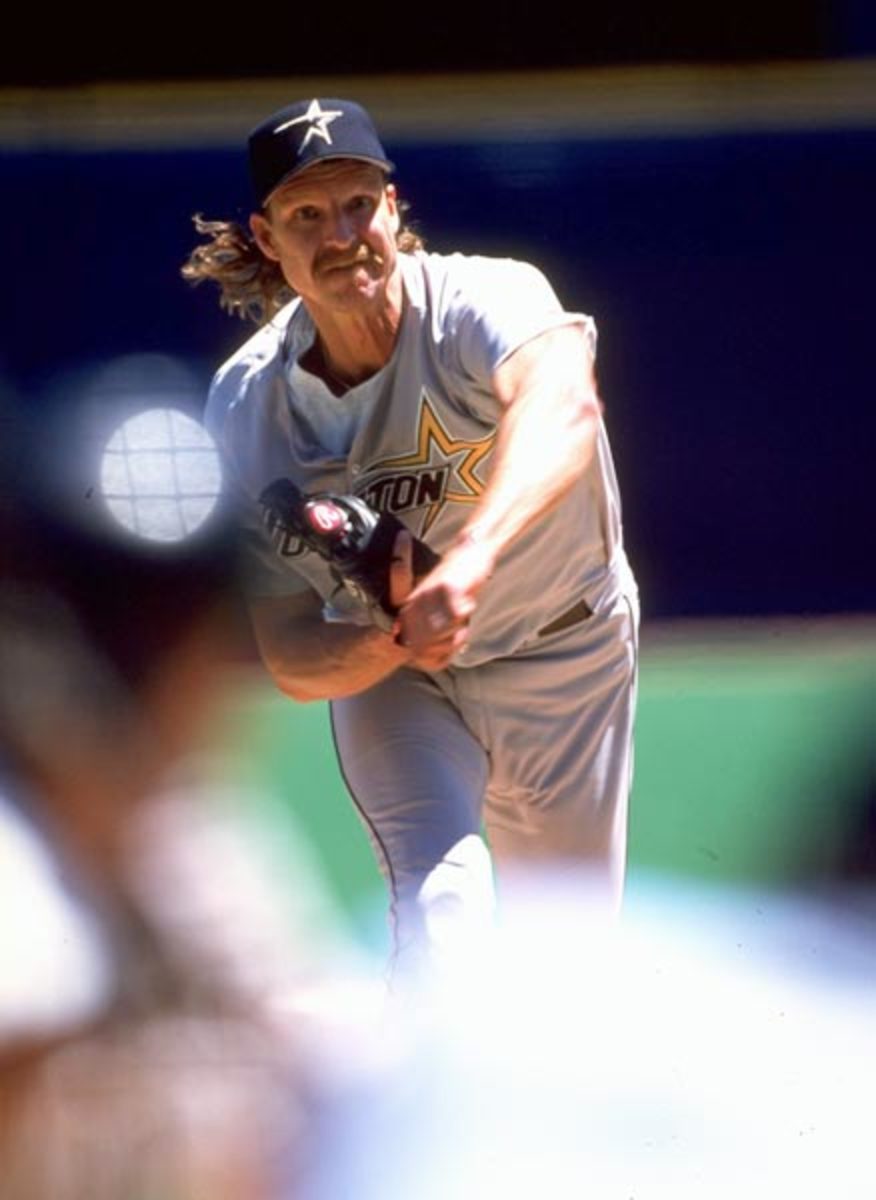
<italics>Details: The Mariners traded Randy Johnson to the Astros for Freddy Garcia, Carlos Guillen and John Halama.</italics> Despite being a Seattle icon for almost a decade, Randy Johnson did not receive an adequate contract extension from the Mariners, which triggered the massive trade at the 1998 trading deadline. The Mariners received a good return -- all three players would meaningfully contribute in Seattle -- but they finished below .500 in 1998. Johnson was almost unhittable for the Astros, finishing 10-1 with a 1.28 E.R.A., but Houston lost to San Diego in the National League Division Series and Johnson signed with Arizona in the offseason.
Dodgers-Marlins, May 1998
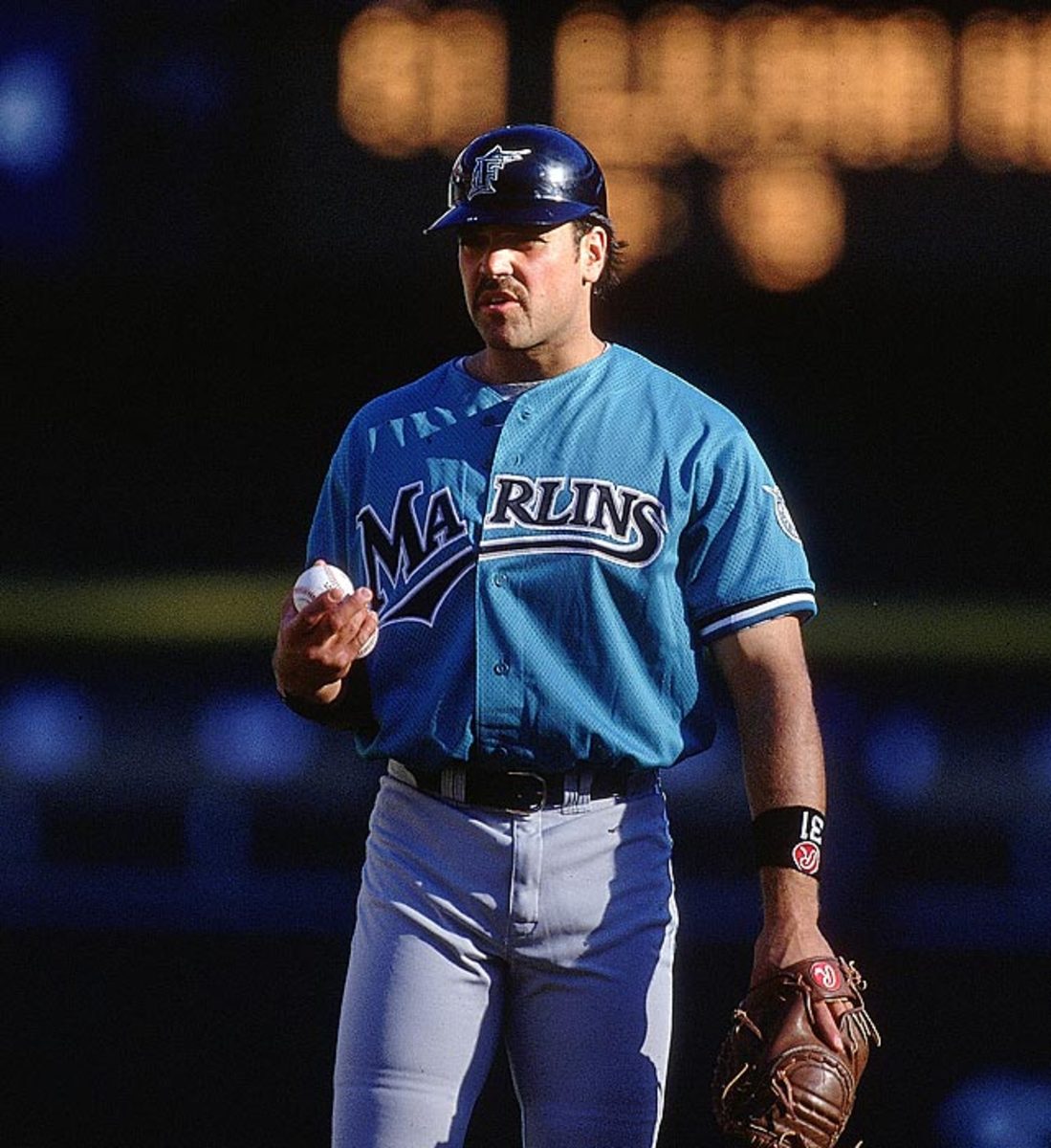
<italics>Details: The Dodgers traded Mike Piazza and Todd Zeile to the Marlins for Gary Sheffield, Bobby Bonilla, Charles Johnson, Jim Eisenreich and Manuel Barrios.</italics> It was a trade that haunted the Dodgers for years, and remains one of the most bizarre in baseball history. The Dodgers had recently been sold from Peter O'Malley to NewsCorp (Fox) and Piazza entered the 1998 season seeking a record-breaking contract. Not wanting a public relations disaster, NewsCorp went over the head of general manager Fred Claire to complete the massive trade that sent the best hitting catcher in the game and the most iconic Dodger out of town. Piazza was flipped to the Mets for three prospects 10 days later, and manager Bill Russell and Claire were fired five weeks later.
Padres-Blue Jays, December 1990
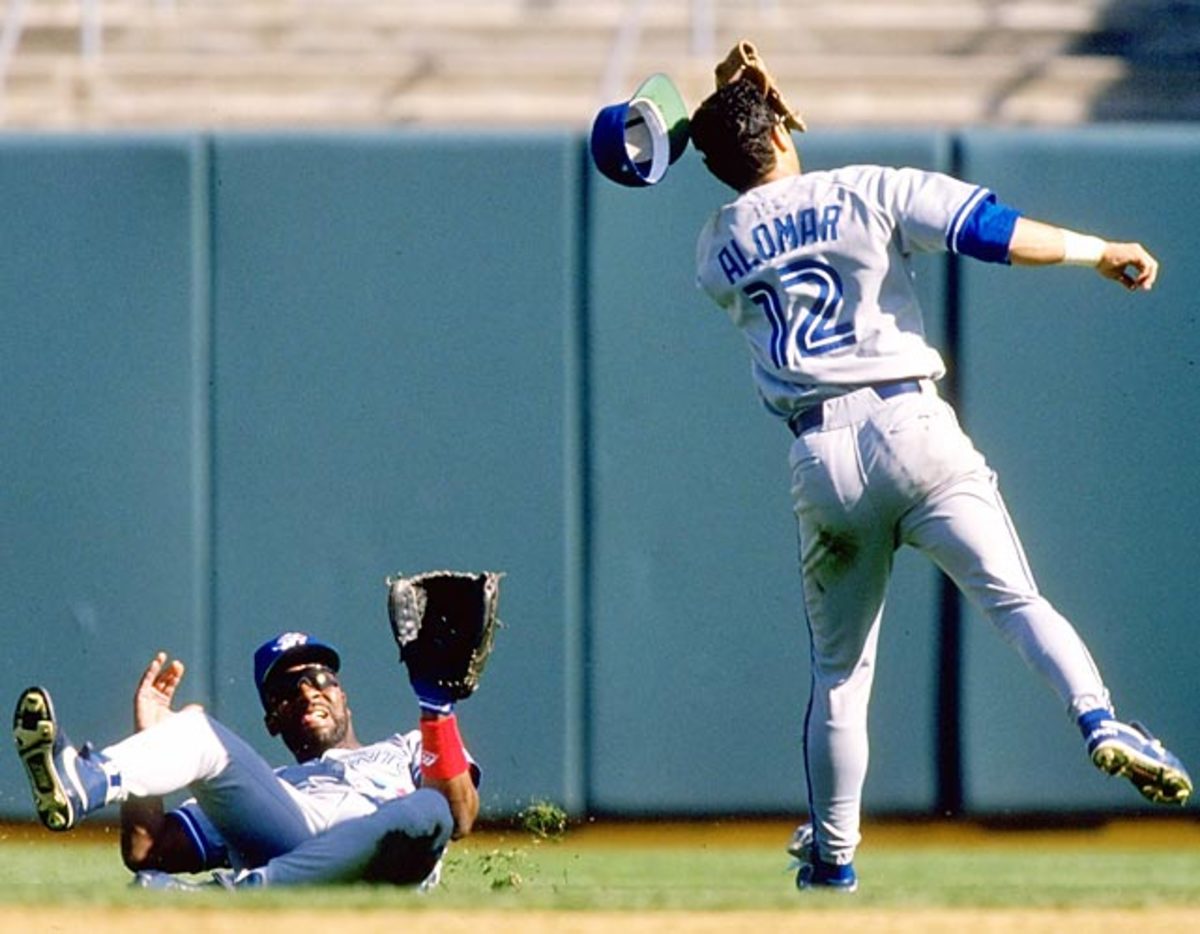
<italics>Details: The Padres traded Roberto Alomar and Joe Carter to the Blue Jays for Tony Fernandez and Fred McGriff.</italics> The trade only featured four players, but all four were named to multiple All-Star teams and received MVP votes in at least three different seasons. Carter was an immediate hit in Toronto, winning Silver Slugger awards in his first two seasons and famously belting only the second World Series-clinching walk-off home run in 1993. Alomar won Gold Gloves in each of his five seasons in Toronto and was an All-Star in each year as well. Both McGriff and Fernandez were All-Stars in 1992, and McGriff won a Silver Slugger award that year, but both would be out of San Diego by the 1993 trading deadline.
Reds-Mets, June 1977
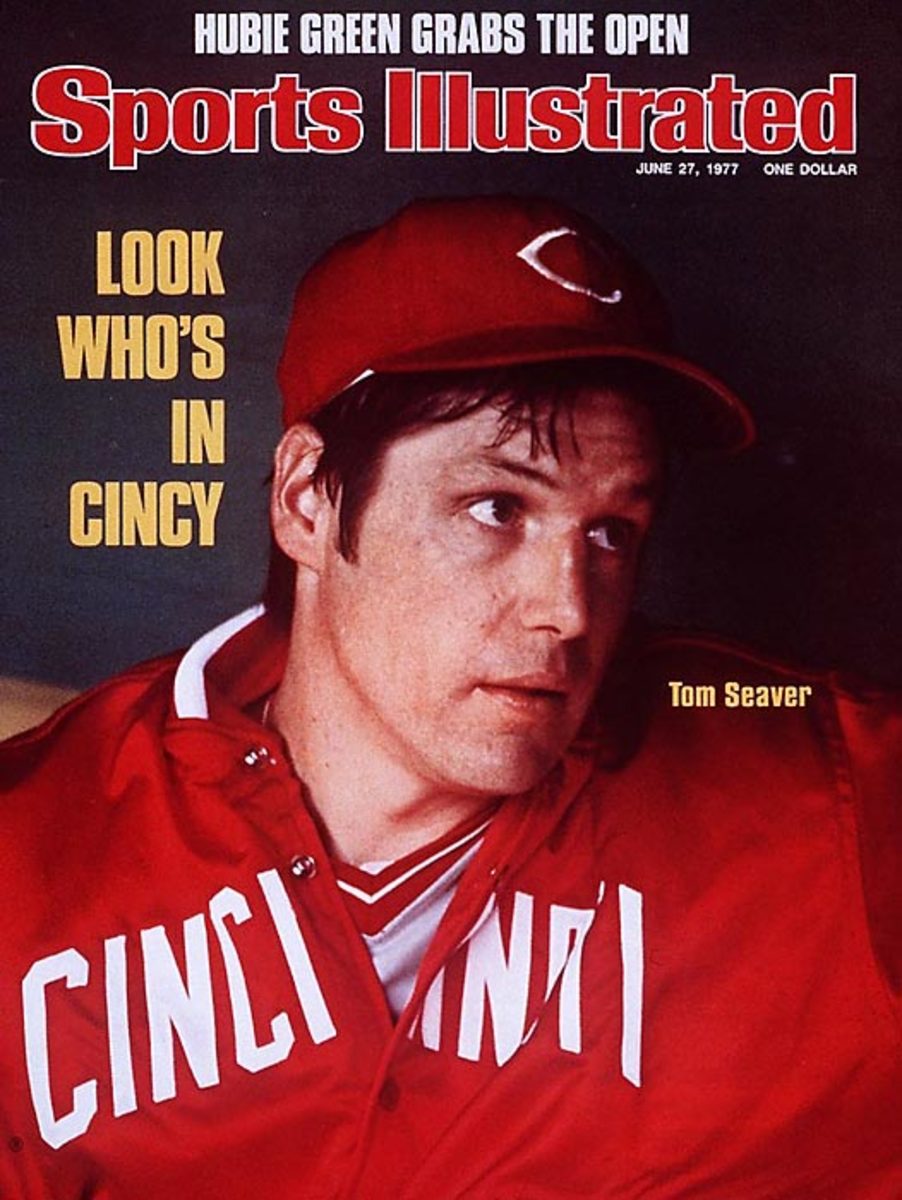
<italics>Details: The Mets traded Tom Seaver to the Reds for Doug Flynn, Steve Henderson, Dan Norman and Pat Zachry.</italics> Immersed in contentious contract negotiations with the Mets, Tom Seaver wanted to make the kind of money that other elite starters were making. The Mets refused to budge. Suddenly, Seaver was shipped to Cincinnati in the middle of June, where he won 14 of 17 decisions and finished the year with 21 wins. Mets fans were devastated at Seaver's departure, as evidenced by lengthy standing ovations in his return to Shea Stadium (in which Seaver struck out 11 and hit a double) and at the 1977 All-Star Game at Yankee Stadium. The Mets finished in last place that season.
Mets-Angels, December 1971
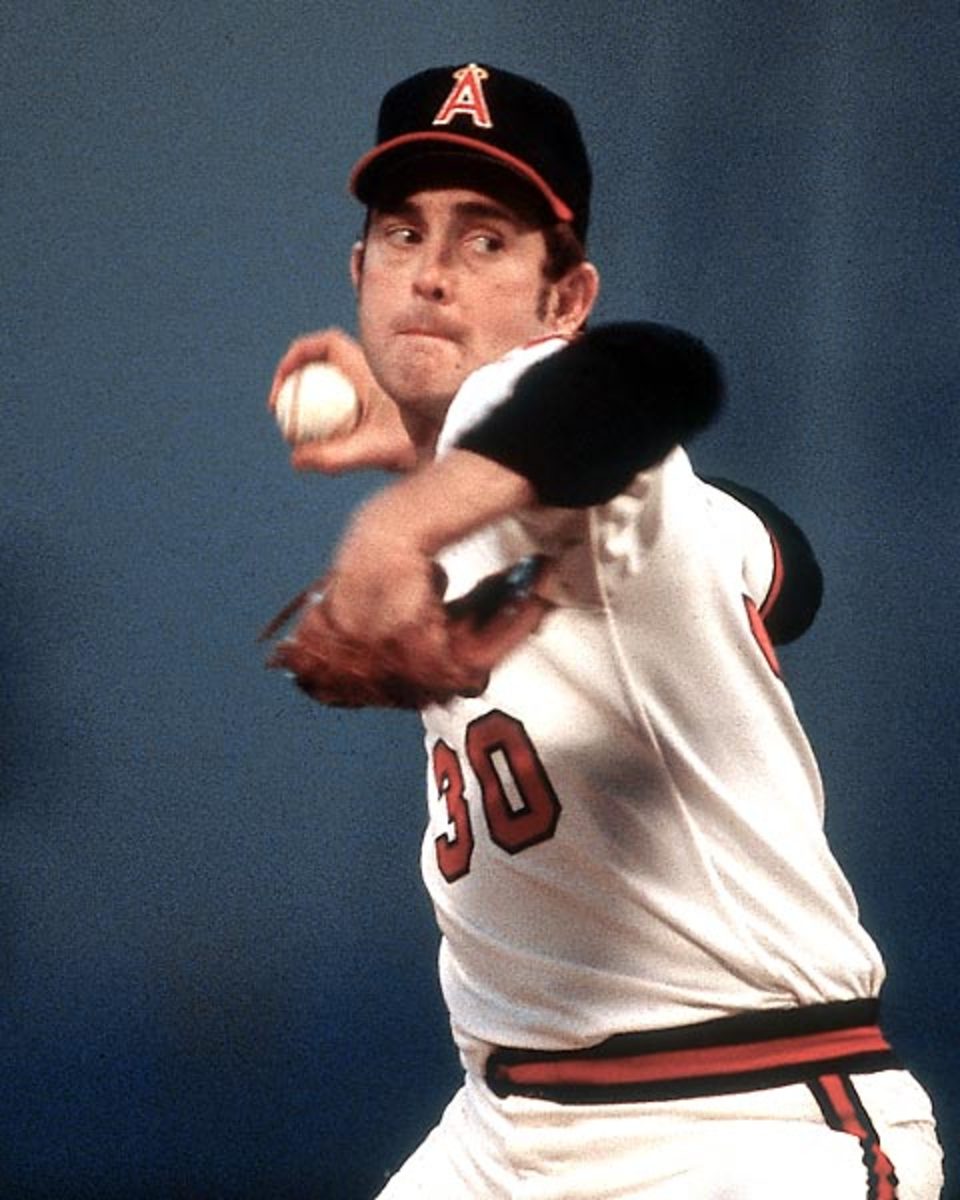
<italics>Details: The Mets traded Nolan Ryan, Frank Estrada, Don Rose and Leroy Stanton to the Angels for Jim Fregosi.</italics> Another one of the "worst trades ever," the Mets sent a young Nolan Ryan (he was 24 at the time of the trade) and three other players for an aging Jim Fregosi. Ryan would immediately emerge as a strikeout machine (he struck out an astonishing 383 batters in 1973) for the Angels while Fregosi played a total of 146 games for the Mets.
Orioles-Reds, December 1965
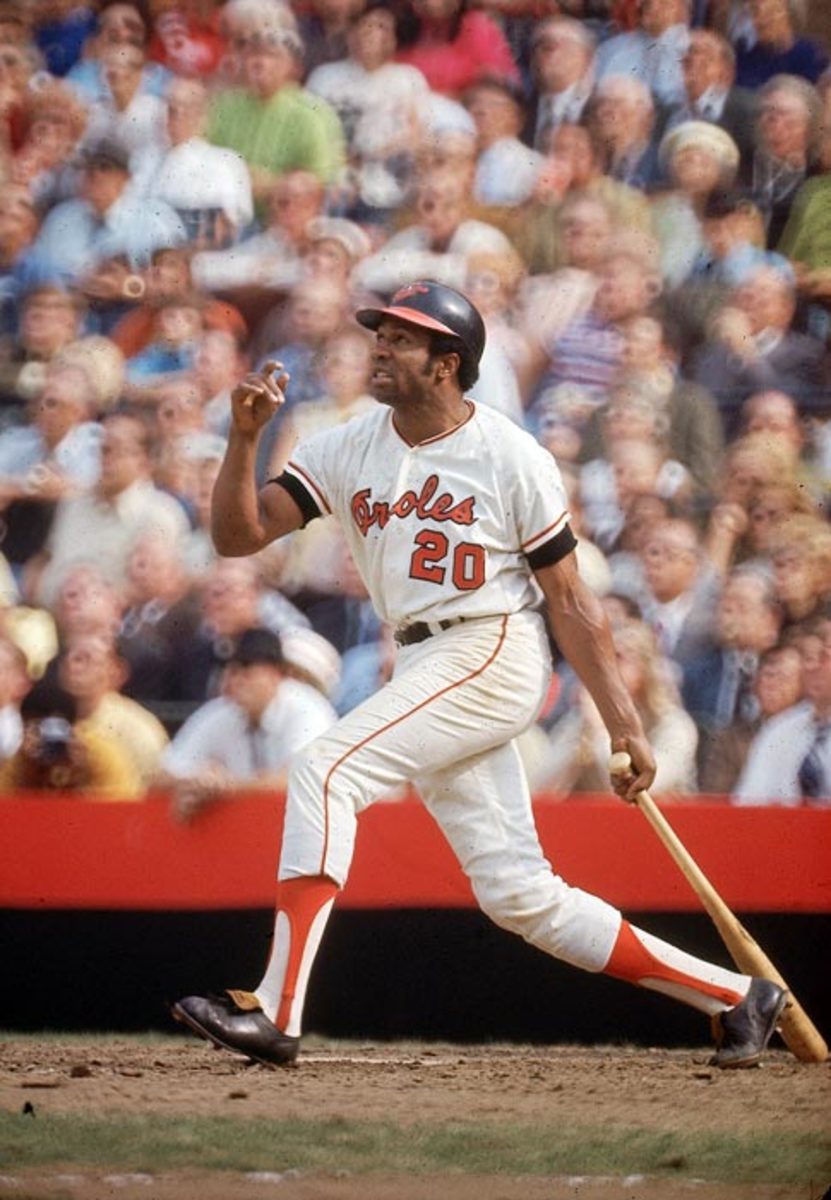
<italics>Details: The Reds traded Frank Robinson to the Orioles for Milt Pappas, Jack Baldschun and Dick Simpson.</italics> The historically lopsided deal saw a Cincinnati legend leave town at the age of 30 ("an old 30" according to Reds owner Bill DeWitt) for three players that never had a significant impact in Cincinnati. Robinson won the Triple Crown, American League MVP and World Series MVP in his first season as an Oriole. He would also be named to six more All-Star teams in Baltimore and win the All-Star Game MVP award.
Cubs-Cardinals, June 1964
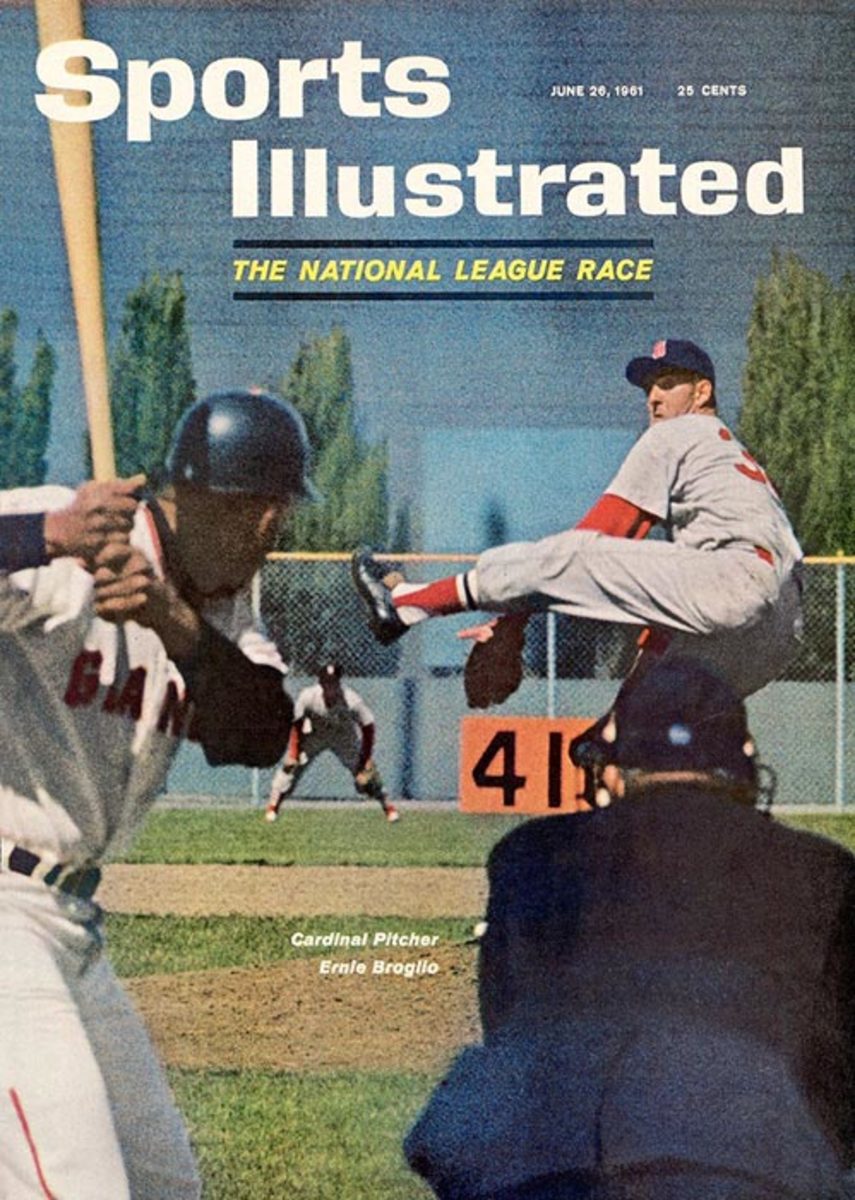
<italics>Details: The Cubs traded Lou Brock, Jack Spring and Paul Toth to the Cardinals for Ernie Broglio, Bobby Shantz and Doug Clemens.</italics> A trade that is now known as one of the most lopsided in baseball history was initially perceived as a steal for the Cubs. Broglio was a 20-game winner in St. Louis (featured on this 1961 SI cover with Orlando Cepeda) and had a curveball that was revered as one of the best in baseball. Brock was an unproven outfielder with great speed but an apparently light bat. Broglio never succeeded with the Cubs because he was frequently injured. Brock would become a legendary Cardinal; he won two World Series titles, was named to six All-Star teams and broke Ty Cobb's all-time stolen base record by the time he retired in 1979. He was elected to the Hall of Fame in 1985.
Yankees-Orioles, November 1954
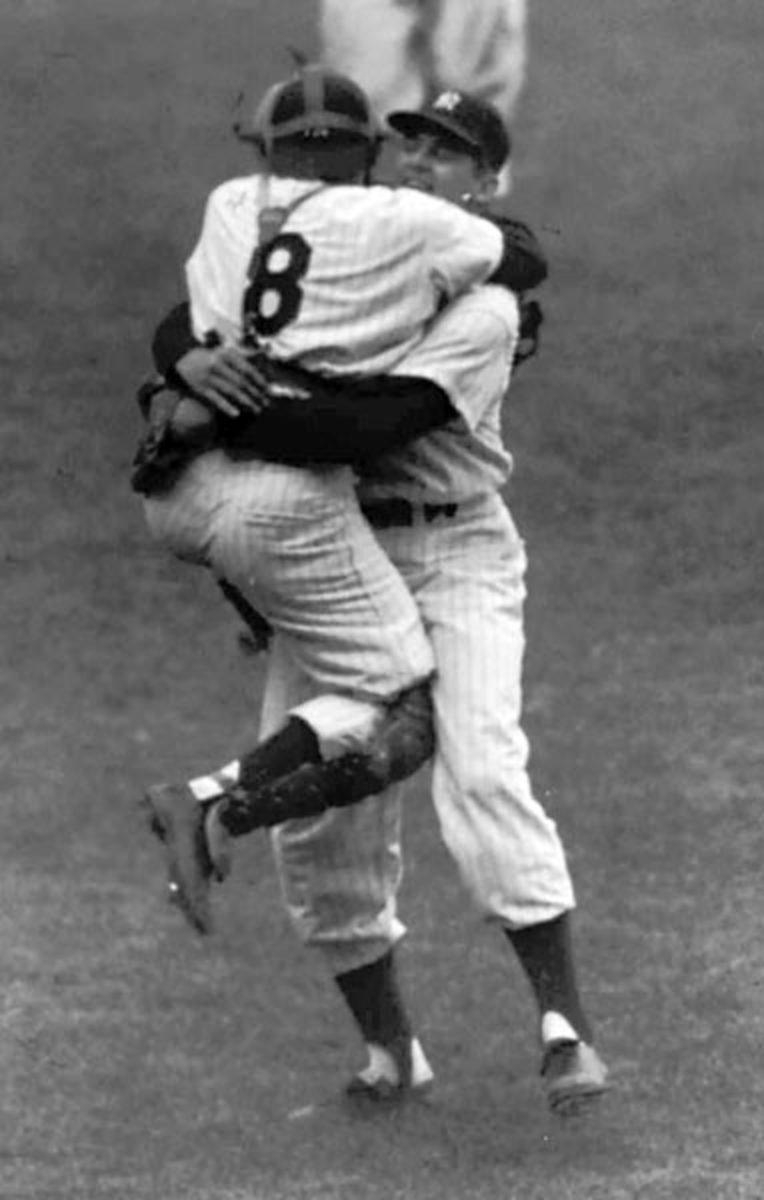
The Yankees and Orioles completed an 18-player deal that swapped mostly inconsequential players, but did deliver Don Larsen to New York. Larsen would famously go on to pitch the only perfect game in World Series history in 1956. The trade also involved Gus Triandos, who was a three-time All-Star in Baltimore and is referenced in season three of The Wire.
